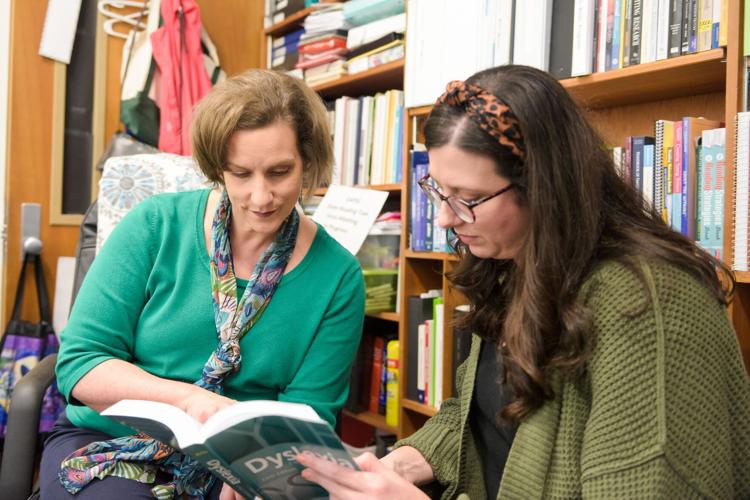Wednesday was Dyslexia Day at the State Capitol 2024. Georgia College & State University has launched the second cohort of its dyslexia endorsement program as part of a state push to detect the neuro-biological condition earlier and give teachers additional resources to help all readers succeed.
“For me, one of the goals of the dyslexia endorsement is to bring a joy, a motivation and an awareness that there are many ways to be successful with reading," said Dr. Linda Bradley, program coordinator for Reading, Literacy and Language in the department of Professional Learning & Innovation.
"It’s about the empowerment and independence that reading and literacy can bring," she said.
States nationwide are searching for ways to ensure students, who find reading difficult, receive early and effective intervention. As many as 20 percent of the U.S. population—one in five people—display mild or more severe signs of dyslexia, according to the National Institutes of Health (NIH).
In Georgia, legislators passed Bill HB538 in March 2023. Georgia’s Early Literacy Act (K-3) prioritized the detection and remediation of dyslexia in children and youth. It called for teachers to be trained in “structured literacy, knowledge of the science of reading” and other high-quality educational techniques.
In recent weeks, Georgia Gov. Brian Kemp earmarked more than $5 million for a list of approved statewide screening assessments to detect signs of dyslexia as early as kindergarten.
Georgia College is one of 20 higher-ed institutions and Regional Education Service Agencies (RESAs) approved by the Georgia Professional Standards Commission (GaPSC) to offer dyslexia endorsement programs for K-12 teachers.
The university received its first grant of $106,000 last spring from the Georgia Department of Education(GaDOE), followed by another grant of nearly $92,000 to continue the program this year.
Funding pays tuition and fees, making the program completely free for teachers in Georgia, like Berinda Turk, a special education instructor at the Early Learning Center in Milledgeville.
Turk was in the university’s first cohort of 20—a mix of teachers from elementary and middle schools from across the state, as well as high school special education, English language and math teachers.
The new cohort just started with 11 additional students.
Turk signed up for the program, in order to help students like a set of twin sisters she taught last year who didn’t have the same reasoning and logic skills other children displayed.
They had trouble remembering shapes and sounds.
“I wanted to learn more about dyslexia so this year, if I was presented with the same type of characteristics," Turk said. "I’d be able to help kids like that a little better.”
Georgia College’s Dyslexia Endorsement Program consists of three online, graduate courses in the spring, summer and fall.
Each course meets three times on Saturdays. Teachers learn about the foundation of language; literacy development in special populations; dyslexia and language difficulties; structured interventions; and how to identify, access and support students with dyslexia. They work on strategies for helping children with dyslexia recognize letters and words.
Between classes, teachers are given additional reading, group discussions and activities to complete.
At the end, teachers are asked to create a portfolio as a final project. In it, they reflect on concepts and strategies they’ve learned and how to apply them in the classroom.
Helping teachers earn graduate credit, while applying strategies that are immediately usable in classrooms, is key to the Georgia College Dyslexia Endorsement Program.
“I encourage anybody who really wants to learn about literacy to do this program,” Turk said. “It’s been a godsend for me because it taught me to be more intentional with my teaching. If we’re going to increase literacy, we’ve got to be intentional about reading.”












